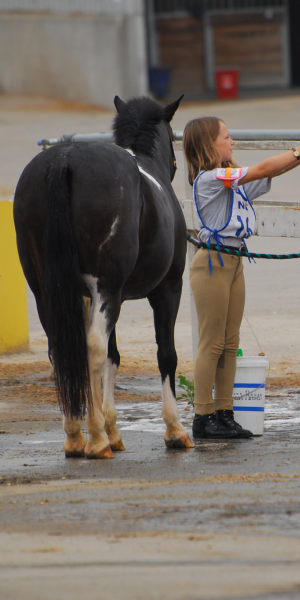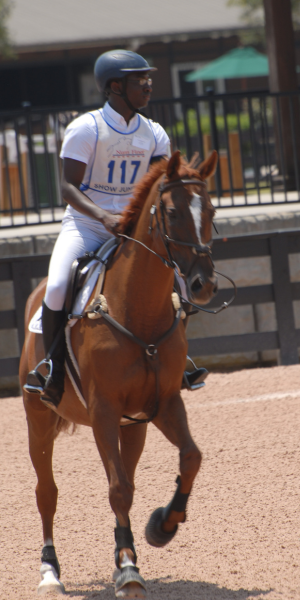
Progression through the certification levels starts at the local level. Clubs and centers offer mounted and unmounted meetings where members are taught the Standards of Proficiency (SOP). Each member progresses in their skills and knowledge at a pace appropriate for them. Members set their own certification goals. Checklists based on the different sections of the SOP have been developed to assist members and their instructors in assessing their readiness and confidence to be evaluated.
Clubs and centers typically offer local certification tests at least twice a year. After the D-1 (beginning) level, a member may progress through the horse management levels, learning horse care and maintenance without continuing to ride if they choose. At the local level, a member must achieve a certification in Horse Management before proceeding to the next riding-level certification. Members may choose to hold riding certifications in one or more of the offered riding tracks – Eventing, Dressage, Hunter Seat Equitation, Western Dressage, and Western.

The D-level certifications (D-1, D-2, D-3) offer an introduction to the fun challenge of riding, establishing a foundation of safety habits and knowledge of the daily care of a horse.
The member demonstrates basic skills on the ground and on the horse. All members begin with this comprehensive test.
The member should be able to demonstrate simple skills, with assistance if necessary, and should understand the basic reasons for the everyday routines of caring for his or her own horse.
The member grows in skills and knowledge and becomes more independent. The candidate should be able to demonstrate simple skills without assistance, and to discuss care of the mount, using common horse terms.

At the C-level certifications (C-1, C-2) members become active horsemen, caring independently for his/her horse and tack. Focus on more independence in horse management as well as developing increased control and confidence in riding are studied.
The member shows a developing awareness of cause and effect in the care of their horse. They must ride with control, using natural aids, and should begin riding their mount freely forward in balance and rhythm while developing a light contact.
The member shows a solid awareness of cause and effect in horse management skills. A C-2 rider shows confidence and control, demonstrates a secure balanced position and progression toward an independent seat with coordinated use of aids. They begin to initiate free forward movement, establishing balance and rhythm while developing a light contact.